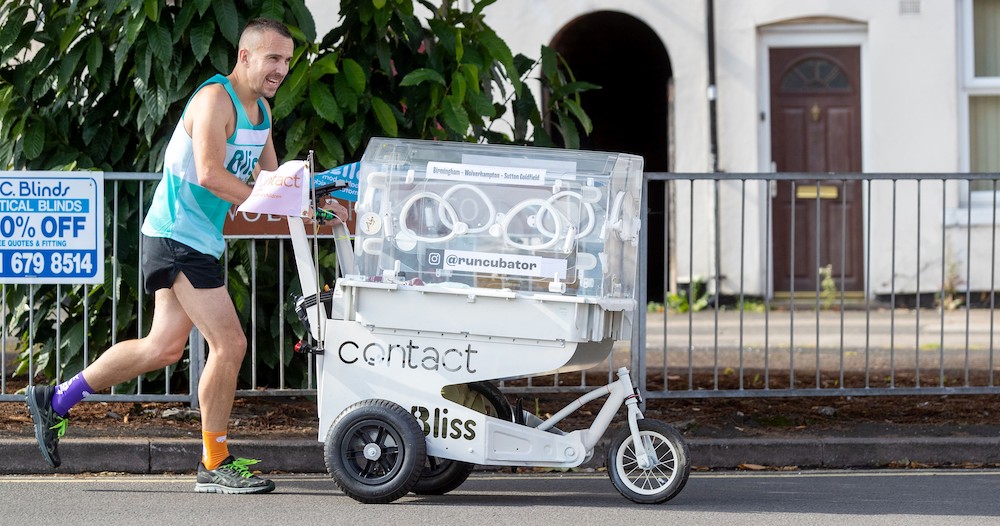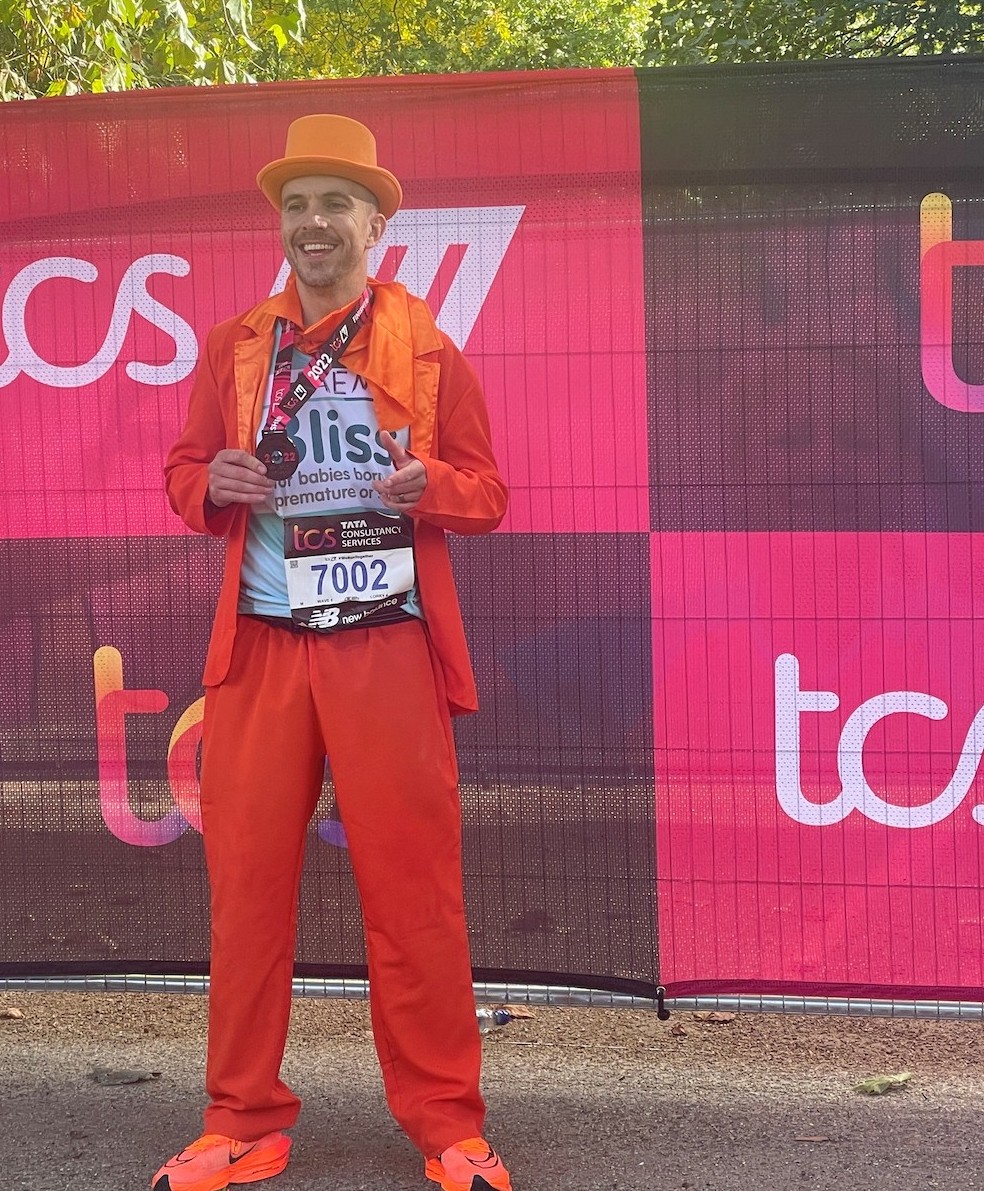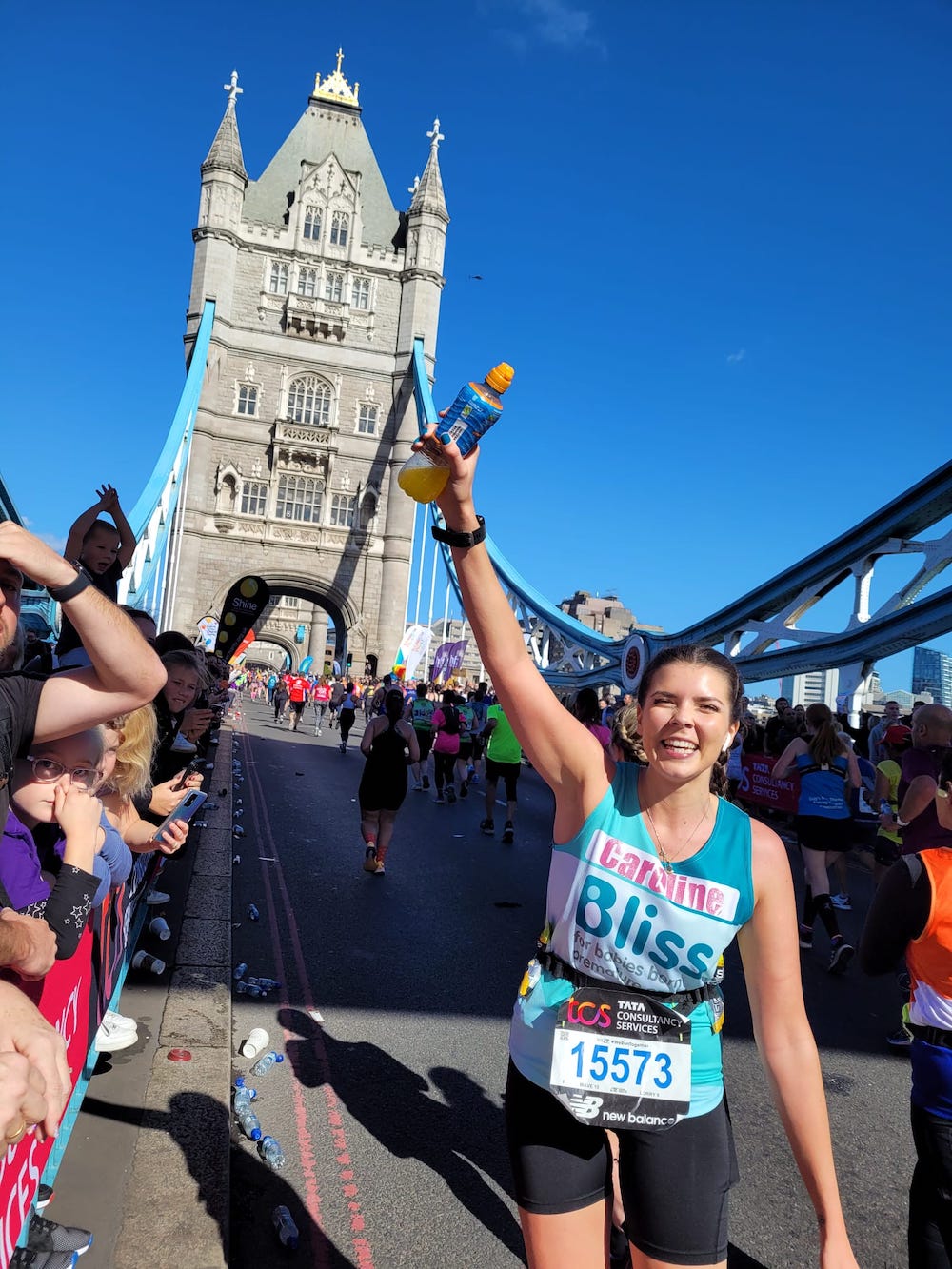Birth plans never go the way they’re supposed to. Graeme and Raych Longstaff, of Birmingham, England, learned this in May 2015 when their twin sons, Ted and Bert, arrived nine weeks and five days early. There wasn’t enough room in the hospital’s neonatal intensive care unit for both babies, so they were transferred to two facilities for care until they were strong enough to go home.
It was a chaotic and confusing time, especially after Ted suffered a brain bleed that led to hemiplegia, a form of cerebral palsy that affects the right side of his body. But the Longstaffs found support from a nonprofit group called Bliss that provides encouragement, counseling, and financial help to families of premature babies.
“It’s a VIP club that no one wants to be part of,” Graeme jokes now. “It’s a big, crazy world to navigate. But Bliss are great.” He and Raych were both grateful to the group’s staff as well as parents they met through the organization, and they wanted to give back. In 2017, Graeme ran the London Marathon to raise money for Bliss. This year, he decided to do it again. But, as the director of a marketing firm, he knew that to raise more money, you have to find a way to stand out.
Enter the ‘Runcubator’
Ted and Bert spent much of their first few weeks of life in GE Healthcare Giraffe incubators. Essentially, explains Caroline Cook, a GE Healthcare modality leader for maternal care, the Giraffe is a big box that provides warmth, humidity, and oxygen for premature babies. It has a built-in scale, X-ray machine, and other medical equipment so the tiny, fragile patients don’t have to be moved. Crucially, it also has open panels on three sides so parents and other caregivers can touch and interact with the babies. It’s “like a high-tech petting zoo,” explains Graeme.
But wouldn’t it be great, he thought, if he could put an incubator on wheels and push it along as he ran the marathon?
He emailed GE Healthcare’s general email to ask if anyone had a spare incubator. By chance, his message was forwarded to Cook, a former midwife who had previously worked with Bliss. “They provide a reassuring voice to discuss things nurses and doctors might not have time to do,” Cook says of the organization. Coincidentally, she was also planning to run the London Marathon to raise money for Bliss. Best of all, she happened to know about an old Giraffe at GE Healthcare’s factory in Hatfield, just north of London, that was being used for parts.
“I didn’t want to get my expectations too high,” says Graeme, “but they were nothing but helpful. Maybe when you’re working in that kind of industry, you don’t realize what that equipment means to people. It’s nice for those guys to hear back from [parents].”
Graeme envisioned the Runcubator as a three-wheeled jogging stroller, only with an incubator in place of seats. An acquaintance who builds stock cars was able to fabricate it to Graeme’s specifications, and the dad began training.
Eight weeks before the marathon, though, Graeme received some bad news from the organizers: He wouldn’t be able to race with the Runcubator after all. “It was a real bummer,” he says, “but it makes sense. You don’t want lunatics running around with homemade contraptions while everyone else wants to have a safe run.” Still, the Runcubator was an important part of his fundraising campaign, and he didn’t want to disappoint his donors.
Taking the Show on the Road
So he created his own marathon route through Birmingham, with stops at each of the three hospitals where the twins had lived in Giraffe incubators. He plotted the route on Google Maps and found it was 30.3 miles, four miles longer than an official marathon, but the number nearly corresponded to the boys’ gestational period of 30 weeks and two days.
On September 25, he set out with Cook, who had driven up from London, cheering him on.
Graeme’s goal was not speed but simply to finish and, in the process, raise awareness of Bliss by stopping to chat with folks along the way. Several passersby, including a neonatal nurse who was on her way to work, tossed donations directly into the Runcubator. But the marathon was more hazardous than he had anticipated. The streets, of course, hadn’t been closed off the way they would have been for an organized marathon, and he had to contend with car traffic, pedestrians, curbs, blocked sidewalks, and tree roots that had pushed through the pavement. Plus the Runcubator was heavy, nearly 100 pounds, and difficult to maneuver. En route to the second hospital, his leg muscles started to spasm, and he called it quits after 16 miles to avoid a serious injury.
Nine days later, he and Cook ran the official London Marathon on October 2, part of a group of 20 runners who were raising money for Bliss. They had each pledged to raise £2,000 (about $2,300), and both surpassed that goal.
They are happy to have raised awareness of premature babies, especially in advance of World Prematurity Day on November 17. According to Bliss’s website, 90,000 newborns in the UK each year require neonatal care, and more than 15 million babies are born prematurely worldwide. “It’s such a prominent thing in people’s lives,” Cook says. “Many don’t talk about how hard it is.” This past summer, the charity cosponsored a bill in Parliament that would give extra paid leave to parents with babies in hospital neonatal units.
And now parents of premature babies have another ally.
“I’m glad we were able to support [Graeme],” Cook says. “It was more than us providing the equipment for him. It was us doing it together. GE Healthcare supported him the whole way.”




